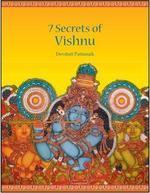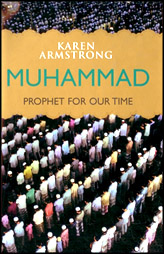7 Secrets of Vishnu
It is significant that the stories of Vishnu rose to prominence after the rise of Buddhism. Prior to that, Hinduism was the religion of the elite-based complex rituals known as yagna and esoteric speculations captured in texts known as the Aranyakas and the Upanishads. These seemed very distant to the common man who focused on fertility rituals, worship of plants and animals and nature.
To help readers unravel the secrets of Vishnu, the chapters have been arranged as below:
The first chapter focuses on how gender is used to explain fundamental metaphysical concepts integral to Hinduism.
The second chapter discusses the difference between man and animal.
The third and fourth chapters focus on the Devas and the Asuras, both of whom are unhappy, as one struggles with insecurity and the other with Ambition.
To help readers unravel the secrets of Vishnu, the chapters have been arranged as below:
The first chapter focuses on how gender is used to explain fundamental metaphysical concepts integral to Hinduism.
The second chapter discusses the difference between man and animal.
The third and fourth chapters focus on the Devas and the Asuras, both of whom are unhappy, as one struggles with insecurity and the other with Ambition.
Devdutt Pattanaik is a doctor who shifted his focus to Indian mythology and their influence on the people of the country. He has written many books based on Indian epics and Puranas.
Devdutt Pattanaik has written other books based on Hindu epics and other related works. Some of his other books are:
Devi, the Mother-Goddess: an introduction
Shiva: an introduction
Vishnu: an introduction
The Goddess in India: the five faces of the eternal feminine
Hanuman: an introduction
The Man Who Was A Woman and other queer tales of Hindu lore
Lakshmi, the goddess of wealth and fortune: an introduction
His Writing Style
Devdutt Pattanaik's style is simple and elegant, and he adds value by creating his own line drawing illustrations ? an unusual combination. He is not strictly traditional in his retelling, yet he remains true to the original spirit of the stories. He also explores the influence of the epics on Indian thought and their continued relevance to life, even today, thousands of years after the stories were written.
His Personal Life
Devdutt Pattanaik grew up in Mumbai and graduated with a degree in medicine from the Grant Medical College. He later studied Comparative Mythology at Mumbai University.
After working in the Healthcare industry for 14 years, he turned his attention to the wisdom and insights contained in the ancient Hindu texts. He started to write books and columns on the subject and has also delivered many lectures on Indian mythology.
Devdutt Pattanaik has written other books based on Hindu epics and other related works. Some of his other books are:
Devi, the Mother-Goddess: an introduction
Shiva: an introduction
Vishnu: an introduction
The Goddess in India: the five faces of the eternal feminine
Hanuman: an introduction
The Man Who Was A Woman and other queer tales of Hindu lore
Lakshmi, the goddess of wealth and fortune: an introduction
His Writing Style
Devdutt Pattanaik's style is simple and elegant, and he adds value by creating his own line drawing illustrations ? an unusual combination. He is not strictly traditional in his retelling, yet he remains true to the original spirit of the stories. He also explores the influence of the epics on Indian thought and their continued relevance to life, even today, thousands of years after the stories were written.
His Personal Life
Devdutt Pattanaik grew up in Mumbai and graduated with a degree in medicine from the Grant Medical College. He later studied Comparative Mythology at Mumbai University.
After working in the Healthcare industry for 14 years, he turned his attention to the wisdom and insights contained in the ancient Hindu texts. He started to write books and columns on the subject and has also delivered many lectures on Indian mythology.
You need to log in to Rate the book
Top rated books in this category
Other books by the same author
Those who have read this book also read these books












































